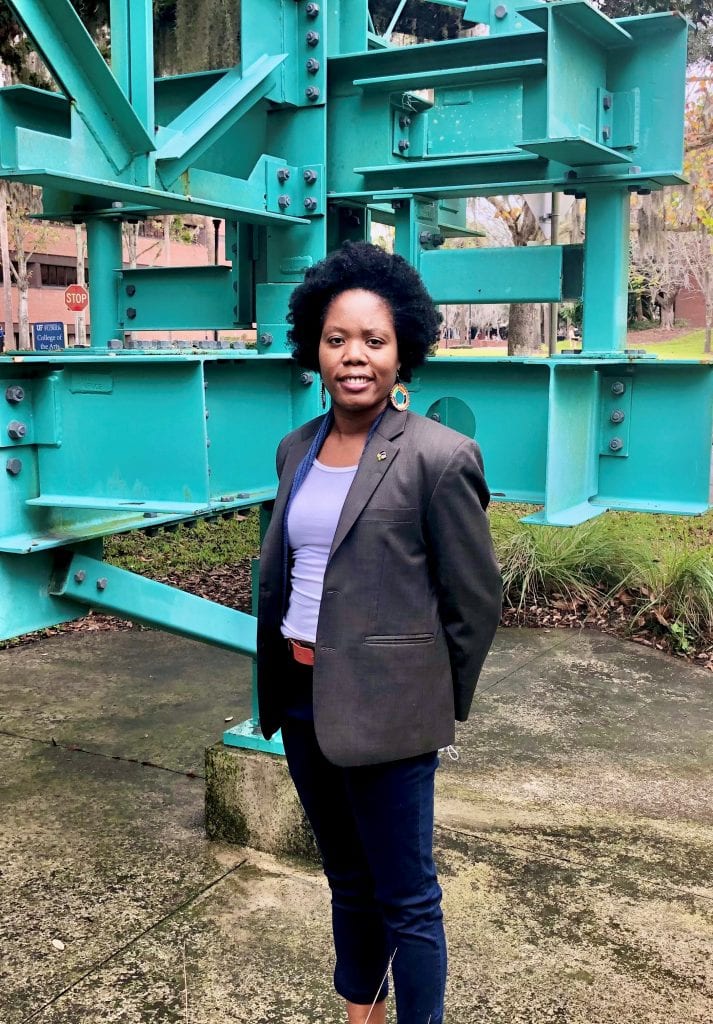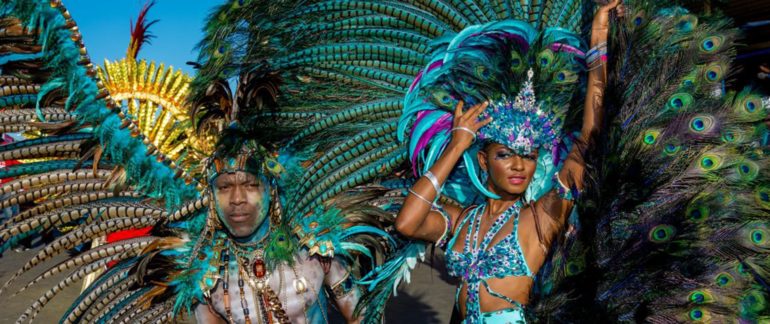London. New York. Toronto. Miami.

No matter where you pinpoint your home on a map across the diaspora, you have most likely seen the bright costumes, heard the beautiful calypso music or felt the positive vibes pulsate through your body.
For University of Florida Assistant Professor of Architecture and Computational Design Vernelle A. A. Noel, however, the world-famous Trinidad Carnival is so much more than a party. For her it is a rich design space that is social, political, technological and historical.
“The Trinidad Carnival, also called Mas’, is a contested design space, political arena and creative outlet through in which individuals and communities express their imagination, innovation and craftsmanship,” Noel said. “Since its reinvention and creation by former slaves in 1834, the Carnival celebrates freedom, and is a vehicle for expressions of creativity and aesthetic sensibilities.”
Noel’s passion for Carnival, along with her talents as the founding director of UF’s Situated Computation & Design Lab, won her a grant from the Mozilla Foundation in January 2021. The project entitled, “Black Arts + Culture: Generative Traditions with Artificial Intelligence (AI) and Design in Carnival,” was one of eight supported by the $260,000 Mozilla fund.
“Our project will use AI to train a machine learning model to recognize dancing sculptures and costumes from the Trinidad Carnival,” Noel said. “The model will then generate new designs based on our dataset, and we will include interaction with them. As humans this would take much longer, but with AI and computational power, we might be able to advance and enhance this creative space.”
Noel’s research and scholarship in design, technology and society merged perfectly with Mozilla’s investment in new ideas in Black arts, technology and society. So why did the only Black woman to earn a Ph.D. in Architecture from Pennsylvania State University choose to marry AI with the Trinidad Carnival?
“It is important that we better understand AI and its social implications,” Noel said. “AI should not be a black box that attempts to scare people. Through design and art, this project opens that black box, puts a spotlight on it and questions how AI might extend a people’s celebration of freedom and creativity, while simultaneously disrupting systems of oppression.”
This story originally appeared on UF College of Design, Construction & Planning.
Check out more stories on the UF AI Initiative.

